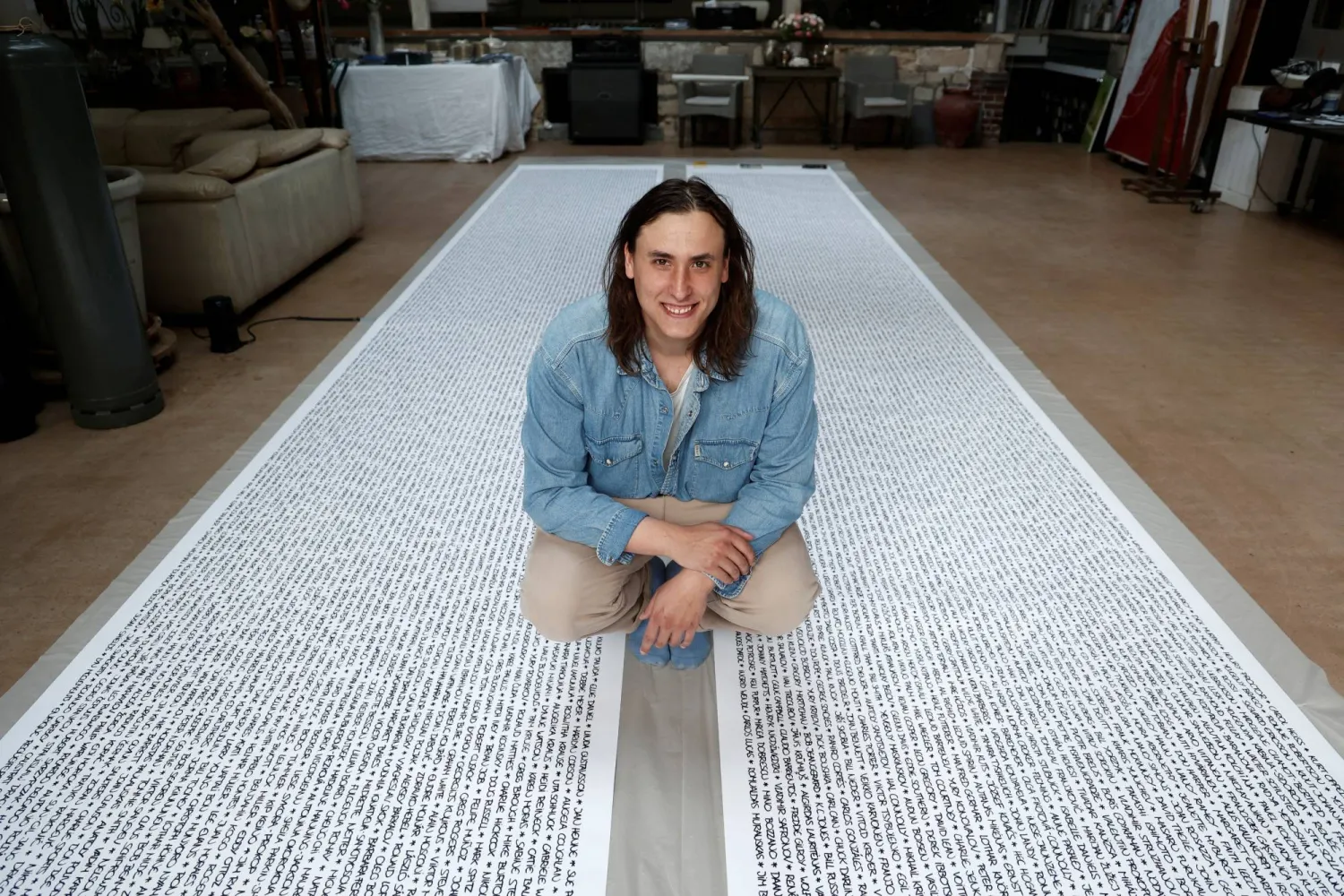A couple of months ago, Baptiste Chebassier quit his consulting job to fully focus on his art project - writing the names of all the 30,249 medalists in modern Olympics' 128-year history before this year's Games start in Paris.
Using a marker pen, the 27-year-old writes the names on a rolling piece of paper that should end up being 120 meters (131 yards) long.
Chebassier said he had the idea for the project three years ago and started from the 1896 Athens Olympics, the first modern games. But progress had been slow since he could only write before or after work or on weekends, he told Reuters.
He now is into the 1980s.
"Then, I quit my job a month and half ago, and with the start of the Olympics in late July, I have to finish it whatever happens. I will finish it before the start of the Olympics, and if I can't sleep doing so, then I won't sleep."
Chebassier, who was inspired by Polish artist Roman Opalka's work on passing time, also travelled to see some former Olympic athletes and wrote their names on his piece in their presence.
In southern France, for example, he met Perrine Pelen, who a won a bronze medal in Alpine skiing at the 1980 Lake Placid Olympic and a bronze and silver at the 1984 winter Games in Sarajevo.
"I'm very honored to see my name. There is great joy in looking back, and I'm very honored to be among all these medalists," Pelen told Reuters.
"And this is a chance for me to say that we know how much of an impact an Olympic medal can have."
Chebassier said he had yet to find a place where to display his artwork.
"I would like to be able to share this photography of all the Olympic medalists during the 2024 Paris Games in a place where it could be seen by athletes, so that they can see their names and maybe their family members', as well as by attendees, because it's also their heroes' names that are written here," he said.
French Artist in Race Against Time to Finish Monumental Piece

French artist Baptiste Chebassier poses in the middle of a part of his artwork, made from rolls of recycled paper on which names of 30,249 Olympic medallists will be written, at the Chebassier workshop in Saint-Ouen, near Paris, France, April 5, 2024. REUTERS/Noemie Olive

French Artist in Race Against Time to Finish Monumental Piece

French artist Baptiste Chebassier poses in the middle of a part of his artwork, made from rolls of recycled paper on which names of 30,249 Olympic medallists will be written, at the Chebassier workshop in Saint-Ouen, near Paris, France, April 5, 2024. REUTERS/Noemie Olive
لم تشترك بعد
انشئ حساباً خاصاً بك لتحصل على أخبار مخصصة لك ولتتمتع بخاصية حفظ المقالات وتتلقى نشراتنا البريدية المتنوعة







